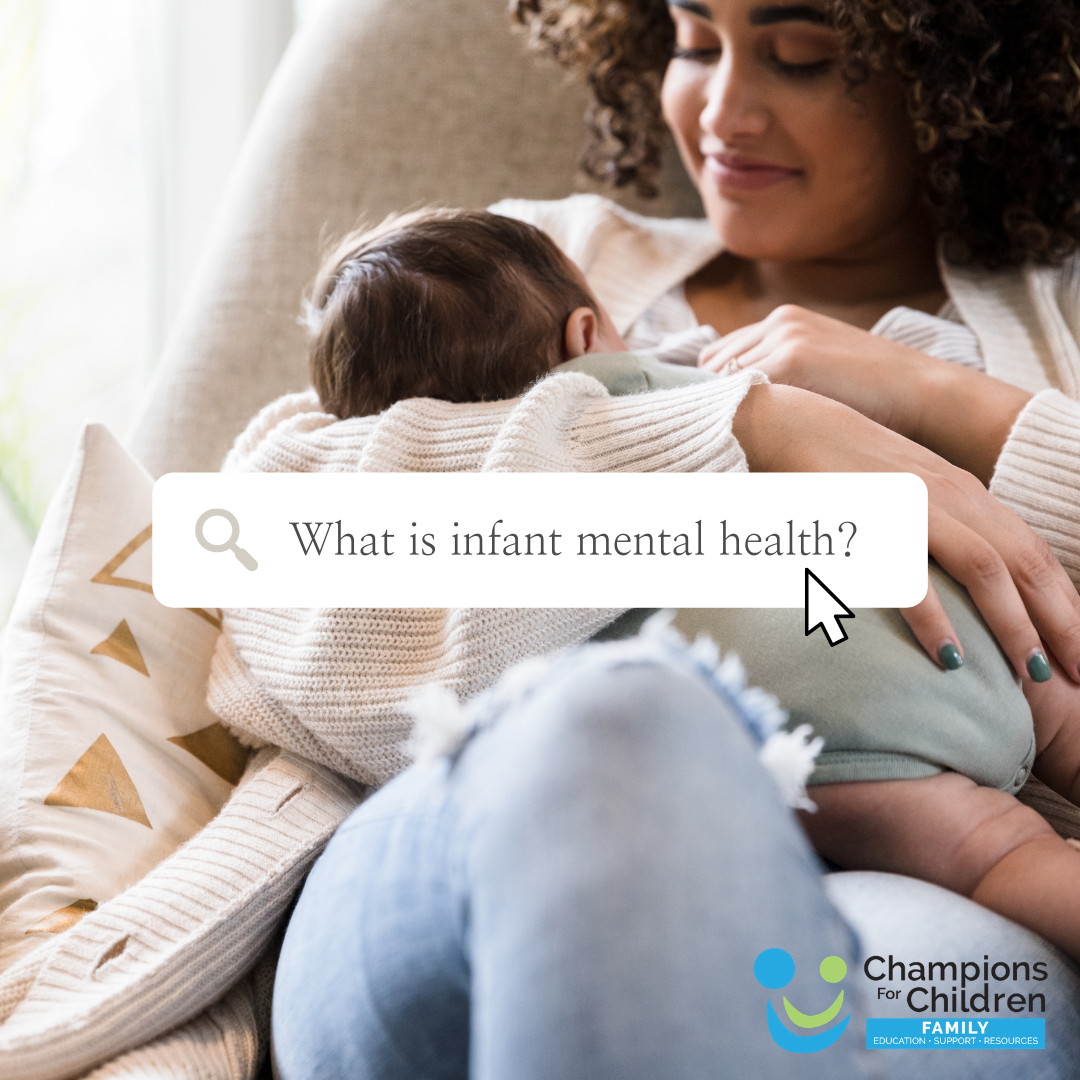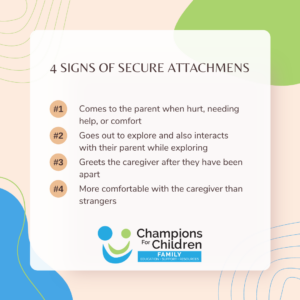Infant Mental Health
May is Mental Health Awareness Month

Mental health has been a hot topic during the pandemic. When people think about mental health, their minds tend to focus on adults and teens. The mental health of infants and young children is rarely considered – yet it is important to nurture a child’s mental health starting from birth. For infants and young children, secure relationships with parents and other close caregivers provide a strong social-emotional foundation that promotes confidence and curiosity. This paves the way for the development of positive self-esteem and the complex social and cognitive skills necessary for success in school and life.
What is infant Mental Health?
Infant mental health or early childhood mental health refers to how well a child develops socially and emotionally from birth to three. Babies’ social and emotional development is foundational to other aspects of early development. Social-emotional development is the capacity to form secure relationships; experience, express, and manage a range of emotions; and learn and explore one’s environment. It influences infants’ and toddlers’ early cognitive development and later health and mental health outcomes.
How can you support your infant’s mental health?
One way parents and caregivers can support their child’s mental health is by taking the steps to build secure attachments. One way to build a secure attachment is to talk, read and sing to your baby. When your baby hears your voice, it is soothing and comforting. You can also watch and listen to your baby. Try to notice early cues such as back arching, hand sucking, and grunting so you can quickly meet baby’s needs and avoid excessive crying. Infants learn to regulate their emotions based on how their parent or caregiver responds. Check out the graphic below to learn about signs of secure attachments!

How can Champions help?
At Champions, we are helping families build their strength and resiliency to give their children good beginnings that last a lifetime. We know that stressful events during childhood can have a negative impact across the lifespan. Promoting protective factors that buffer against these negative impacts is a vital way for us to help more children have a healthy future.
One way we do this is through our developmental screenings. These screenings help parents and caregivers learn more about their child’s milestones, how to best foster development and available community resources that can support families. Regular developmental screenings from our trained professionals can promote early social-emotional development and prevent problems in their early stages from taking root and becoming more difficult to address as children grow. Champions offers complimentary developmental screenings for children aged 2 to 66 months! For more information, call 813-673-4646 ext. 7.
Educational Playgroups at Champions can also help form secure attachments. These playgroups are designed for parents and caregivers to interact and build skills with their children through play, while allowing families to connect with one another and with valuable resources.
Our Parents as Teachers program is an evidence-based home visiting program that promotes healthy development, support for the parent-child relationship, and family well-being for children and families, prenatal through kindergarten. We support parents and caregivers and give them the skills to work, play and read directly with their children so they can reach their full potential, both developmentally and emotionally. For more information and to enroll, call (813) 673-4646 ext 1145 or e-mail parentsasteachers@cfctb.org.
Raising a child is hard work. As a parent, you are your child’s first – and most important – system of support. We all know that our children do not come with a handbook! It’s okay to not have all of the answers. Champions is here to help you along the way to become the best parent you can be! Call our warm line for parenting support at 813-673-4646 ext. 7.
Links to resources:
How to Build Buffers Against ACEs and Their Consequences (nichq.org)
Building Secure Attachments
More on Infant Mental Health
